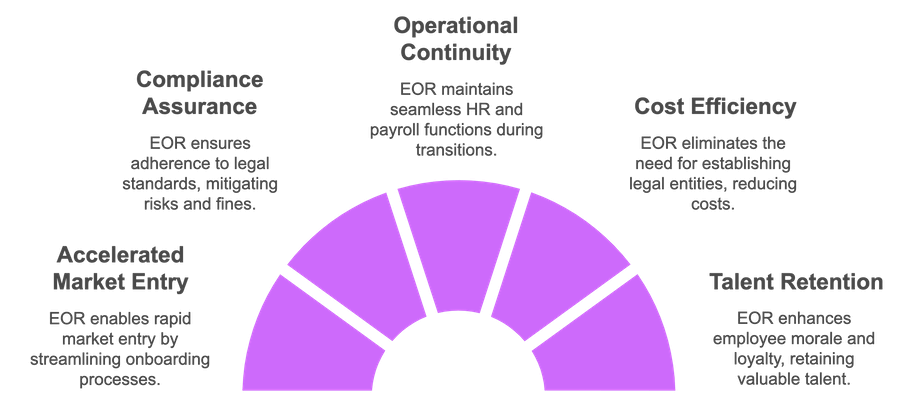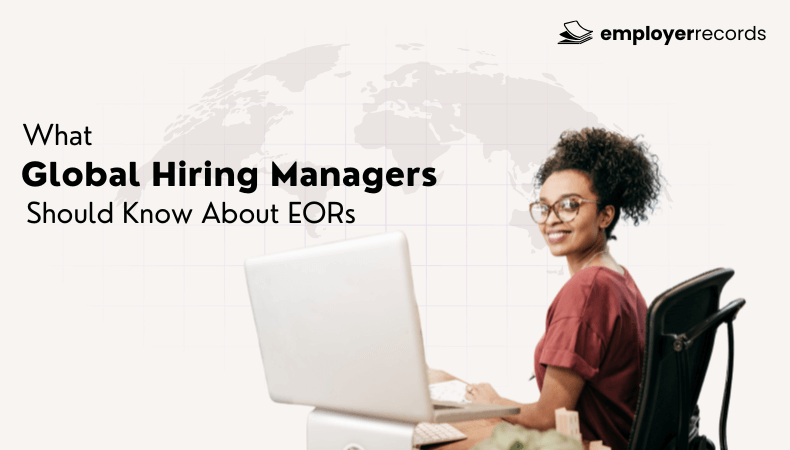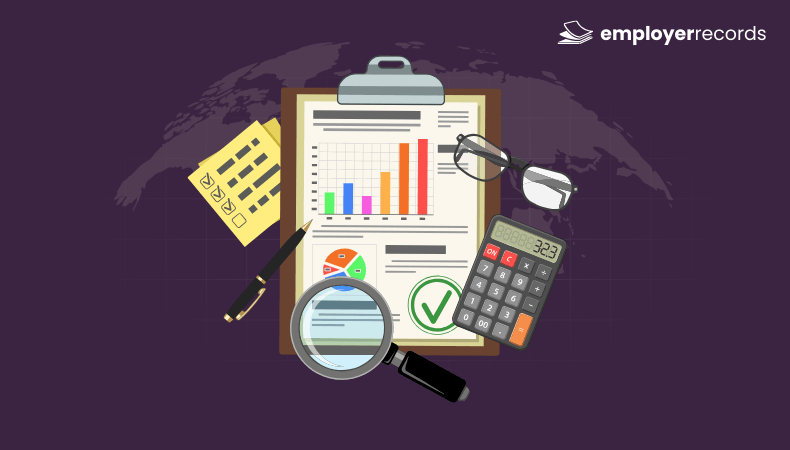Mergers and acquisitions (M&A) are inherently complex transactions that involve substantial financial negotiations as well as the blending of diverse organizational cultures and teams.
Integrating employees across multiple jurisdictions introduces a host of challenges, from reconciling differing contract requirements to aligning benefits programs with local regulations.
Effective pre-deal due diligence must therefore include a thorough review of employment practices to identify potential liabilities and ensure smooth workforce integration.
Once the deal closes, maintaining compliance with local payroll, tax withholding, and benefits administration is critical to avoid costly penalties and reputational damage.
Cross-border transactions also heighten the risk of employee misclassification and related legal exposure if roles and statuses are not properly aligned. Furthermore, successful cultural and operational integration hinges on seamless HR processes that foster engagement and retention.
Employer of Record (EOR) simplifies these complexities by legally acting as the employer for acquired staff, ensuring all local compliance requirements are met.
EORs handle payroll, taxes, benefits, and statutory filings across jurisdictions, significantly reducing the administrative burden for the acquirer. This arrangement allows companies to concentrate on core strategic objectives, such as driving synergies and innovation, without delays from entity-establishment processes.
By offering localized HR expertise and consistent support, EORs also enhance employee satisfaction and retention during transitional periods.
What Is An Employer Of Record (EOR)?
Employer of Record (EOR) is a third-party organization that legally employs workers on behalf of another company and assumes all employer-related responsibilities such as payroll, taxes, benefits, and statutory compliance across jurisdictions.
An EOR enables businesses to engage talent globally without establishing a local legal entity, significantly accelerating market entry and reducing administrative overhead.
By handling employment contracts, payroll processing, tax withholding, and statutory filings, an EOR ensures compliance with regional labor laws and mitigates legal risks.
While the client retains day-to-day control over employees’ activities, the EOR manages the complexities of HR administration, allowing companies to focus on core operations.
The Strategic Role Of EORs In M&A
In the intricate landscape of mergers and acquisitions (M&A), integrating diverse workforces across multiple jurisdictions presents significant challenges. Navigating varying employment laws, tax regulations, and compliance requirements can be daunting for acquiring companies.
An Employer of Record (EOR) emerges as a strategic partner in this context, offering solutions that streamline workforce integration, ensure compliance, and maintain operational continuity during transitional phases.
The strategic role of EORs in M&A encompasses several critical functions:
Facilitating Rapid Market Entry
During an acquisition, especially one that involves entering new markets, setting up a legal entity can be time-consuming and costly.
An EOR enables the acquiring company to quickly onboard employees in the target market without the need for immediate entity establishment, ensuring business continuity.
Ensuring Compliance Across Jurisdictions
Labor laws vary significantly across countries. An EOR possesses the expertise to navigate these complexities, ensuring that employment contracts, benefits, and terminations comply with local regulations, thereby mitigating legal risks.
Managing ‘Orphaned’ Employees In Carve-Outs
In carve-out scenarios, certain employees may not have a clear reporting structure post-acquisition. An EOR can temporarily employ these ‘orphaned’ employees, providing stability until the acquiring company establishes its entity or decides on a long-term solution.
Streamlining HR and Payroll Integration
Integrating HR systems and payroll processes is a significant challenge in M&A. An EOR centralizes these functions, offering standardized processes and systems that facilitate smoother integration and reduce administrative burdens.
Supporting Cultural Integration and Employee Retention
M&A activities can lead to uncertainty among employees. An EOR provides consistent communication, benefits, and support, helping to maintain morale and reduce turnover during transitional periods.
Benefits Of Using An EOR In M&A
In the intricate landscape of mergers and acquisitions, particularly those spanning multiple countries, ensuring compliance with diverse labor laws and maintaining operational continuity can be daunting.
Engaging an Employer of Record (EOR) offers a strategic solution to these challenges, facilitating smoother transitions and mitigating potential risks.
| Without EOR | With EOR |
|---|---|
| Entity setup delays | Rapid onboarding in new markets |
| Legal & compliance risks | Local compliance ensured |
| Complex HR integration | Standardized HR processes |
| Employee uncertainty | Stable employment experience |
| High setup costs | Cost-effective flat fees |
Below are the key benefits of utilizing an EOR during M&A processes:
Accelerated Market Entry
EORs enable companies to onboard employees in new regions within days or weeks, dramatically faster than the months-long process of setting up a local legal entity, and therefore expedite integration timelines for mergers and acquisitions.
This rapid market entry ensures that talent is in place to support deal-driven growth objectives without delays from entity formation or local registration hurdles.
Compliance Assurance
With deep expertise in local labor regulations and statutory requirements, EORs safeguard companies against non-compliance by certifying that contracts, tax withholdings, and benefits align with regional laws.
Their ongoing monitoring and legal support reduce the risk of penalties, audits, and reputational damage, critical when integrating diverse workforces under one corporate umbrella.
Operational Continuity
By centralizing HR functions such as payroll processing, benefits administration, and statutory filings, EORs maintain seamless business operations throughout M&A transitions.
This continuity prevents disruptions in employee pay and entitlements, ensuring that acquired staff remain engaged and focused on core responsibilities rather than administrative uncertainties during organizational change.
Cost Efficiency
Avoiding the significant capital and operational expenses of establishing and maintaining foreign entities, EORs offer a more economical solution for managing international workforces.
Their scalable infrastructure and flat-fee models eliminate hidden setup costs and overhead, enabling acquirers to allocate resources more strategically toward growth initiatives rather than administrative burdens.
Talent Retention
By providing consistent employment terms, localized benefits packages, and responsive HR support, EORs enhance employee satisfaction and foster loyalty during the uncertainties of M&A.
Their expertise in onboarding, career-path counseling, and offboarding processes helps preserve institutional knowledge and reduces turnover among key personnel essential for sustaining post-deal performance.
Leveraging the services of an EOR during M&A activities not only streamlines the integration process but also fortifies the foundation for sustained organizational success.

Considerations When Engaging An EOR
Selecting the right Employer of Record (EOR) is a critical decision that can significantly impact the success of your mergers and acquisitions (M&A) strategy.
A well-chosen EOR partner not only ensures compliance across various jurisdictions but also facilitates seamless integration of diverse workforces, enabling your organization to focus on core business objectives.
However, not all EOR providers offer the same level of service or expertise. It’s essential to evaluate potential partners based on several key factors to ensure they align with your company’s specific needs and goals.
Below are important considerations when engaging an EOR:
1. Global Coverage & Local Expertise: Ensure the EOR has direct entities or vetted partners in all jurisdictions where you plan to hire, with a deep understanding of country-specific labor laws and market customs. Their local teams should proactively update you on regulatory changes to keep your workforce compliant.
2. Compliance & Legal Support: Verify that the EOR maintains robust compliance processes—covering worker classification, tax withholding, benefits administration, and statutory filings—to mitigate risks of fines and legal exposure. Review their standard contracts and service agreements to confirm the clear allocation of responsibilities and liabilities.
3. Pricing Transparency: Ask for a detailed breakdown of all fees: setup, monthly, payroll, termination, and any third-party markups, to avoid hidden costs that can derail budgets. A reputable EOR provides upfront, itemized pricing and a fair price guarantee where possible.
4. Technology & Systems Integration: Evaluate the EOR’s HR and payroll platforms for user-friendliness and compatibility with your existing HRIS or ERP systems. API access and real-time reporting capabilities help streamline data flow and reduce administrative overhead.
5. Track Record & References: Examine case studies and seek testimonials from clients of similar sizes and industries to gauge the EOR’s performance and reliability in supporting M&A transitions or rapid expansions. Reference checks can reveal strengths and potential pitfalls in their service delivery.
6. Service Scope & Service Level Agreements (SLAs): Confirm the full scope of services, onboarding, payroll, benefits, offboarding, and insist on SLAs that define response times, resolution processes, and escalation paths for critical issues.
7. Data Security & Privacy: Assess the EOR’s data-protection policies, encryption standards, and compliance with regional privacy regulations (e.g., GDPR, CCPA) to safeguard sensitive employee information.
8. Communication & Customer Support: Strong, dedicated account management and clear communication channels (email, phone, ticketing) are vital for resolving queries and maintaining alignment throughout the engagement.
9. Employee Experience & Retention: Review how the EOR handles onboarding, benefits enrollment, local holiday policies, and offboarding to ensure a positive employee journey and reduce turnover during transitional periods.
10. Cost Structure & Scalability: Beyond transparent pricing, evaluate whether the EOR can scale services as your headcount grows or contracts and whether volume discounts or flexible terms apply as part of your long-term workforce strategy.
By carefully assessing these factors, you can select an EOR partner that supports your M&A objectives and contributes to the smooth integration of your global workforce.
Conclusion
Managing people during a merger or acquisition is never easy, especially when teams are spread across different countries with their own rules and systems.
That’s where an Employer of Record (EOR) can really help. They take care of the hard stuff, like payroll, taxes, benefits, and making sure everything follows local labor laws, so you don’t have to worry about legal issues or delays.
With an EOR, you can bring new employees on board faster, keep operations running smoothly, and give your team the support they need during big changes. Plus, it helps you focus on the bigger picture, like growing the business and making the merger a success.
In short, working with the right EOR can make your M&A journey a lot less stressful and a lot more successful.







